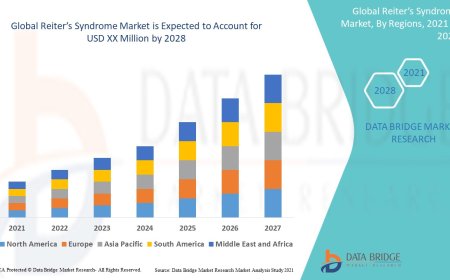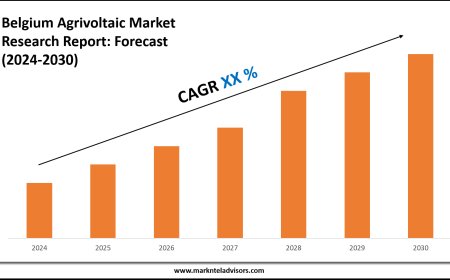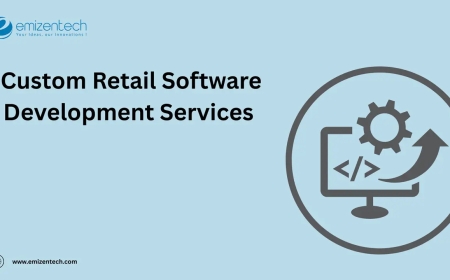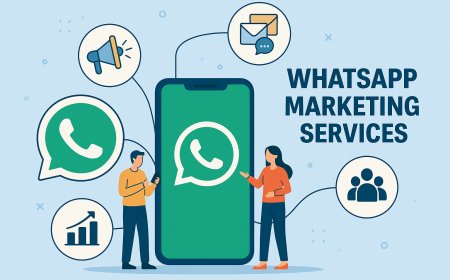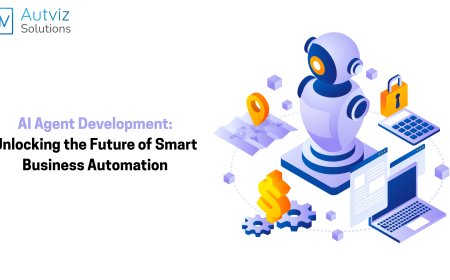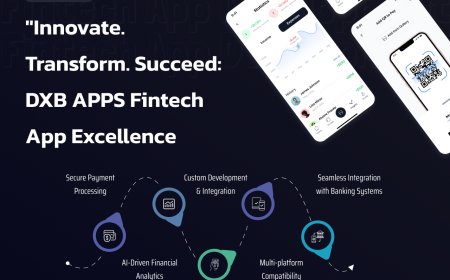Why Data Is Key to Unlocking B2B Email Marketing Success
Discover how leveraging data drives targeted B2B email marketing strategies, boosts engagement, and unlocks higher ROI for lasting business growth.

B2B marketers face fierce competition for attention, trust, and conversions. Amidst the noise, email marketing remains one of the most potent tools to engage prospects and customers effectively. However, the success of B2B email campaigns hinges heavily on one critical factor: data. Without accurate, actionable, and timely data, email marketing efforts often fall flat, failing to deliver meaningful results or generate ROI.
Data unlocks the power to personalize, segment, optimize, and measure campaigns, transforming email marketing from a generic communication channel into a highly targeted and efficient revenue driver. This article explores why data is indispensable to B2B email marketing success and how marketers can harness it strategically to achieve superior outcomes using specialized b2b email marketing services.
B2B Email Marketing
B2B marketing differs significantly from B2C. Decision-making cycles in B2B tend to be longer, involving multiple stakeholders and complex evaluation processes. Buyers seek value-driven, credible, and relevant information to justify purchases. This complexity demands that marketers craft email messages that resonate precisely with individual prospects pain points, industries, and roles.
Generic, one-size-fits-all campaigns no longer cut it. To break through, marketers must know their audience intimately and deliver content tailored to each prospects needs. This is where data plays a critical role.
Data Enables Precision Targeting and Segmentation
Segmentation lies at the heart of effective B2B email marketing. It allows marketers to divide their audience into smaller groups based on shared characteristics such as company size, industry, job title, purchasing behavior, and engagement history. Data fuels this process by providing the necessary details to classify contacts accurately.
For example, a software company targeting both IT directors and CFOs cannot use the same message for both groups. Data helps identify these personas and enables marketers to craft tailored messages that address each roles specific concernstechnical challenges for IT directors and budget implications for CFOs.
By using firmographic data (company-related attributes), demographic data (individual attributes), and behavioral data (interactions and preferences), marketers can create granular segments that boost relevance and response rates. Precision segmentation reduces unsubscribes, improves deliverability, and significantly enhances overall campaign effectiveness.
Personalization Drives Engagement and Conversion
Data empowers personalization beyond simply addressing recipients by name. In B2B, personalization extends to delivering content that reflects the recipients industry, role, past interactions, and stage in the buying journey. The more relevant the message, the higher the chance of engagement.
Research shows personalized emails deliver six times higher transaction rates. This happens because recipients feel marketers understand their unique challenges and offer real solutions. Data collected through CRM systems, website analytics, and previous email interactions enables marketers to create dynamic content blocks, personalized offers, and tailored call-to-actions within their campaigns.
For instance, a prospect who downloaded a whitepaper on cybersecurity will likely respond better to emails highlighting related case studies or product demos rather than generic product promotions. Data-driven personalization creates a dialogue rather than a broadcast, fostering trust and building stronger relationships.
Data Improves Timing and Frequency Optimization
Knowing when and how often to send emails is as crucial as what to send. Data on past campaign performance, engagement patterns, and time zones allows marketers to optimize send times to when recipients are most likely to open and interact with emails.
Advanced email platforms leverage machine learning models to analyze behavioral data and predict optimal send windows for each recipient. This tailored approach minimizes the risk of emails getting buried or ignored, increases open rates, and boosts click-throughs.
Moreover, data helps determine the right email frequency. Bombarding prospects with too many messages leads to fatigue and unsubscribes, while too few may cause lost opportunities. Monitoring engagement datasuch as opens, clicks, and unsubscribesallows marketers to fine-tune sending cadence, maintaining audience interest without overwhelming them.
Data Supports Testing and Continuous Improvement
Data-driven email marketing fosters a culture of continuous optimization. Marketers use data from A/B tests to compare subject lines, content formats, images, and calls to action. By measuring performance metrics like open rates, click rates, and conversions, they gain actionable insights about what resonates best with their audience.
For example, testing two different subject lines on a small subset of recipients before rolling out to the entire list can significantly increase open rates. Similarly, analyzing which links get the most clicks informs future content strategy.
Without data, marketers rely on guesswork, which leads to suboptimal decisions and missed opportunities. Data makes the testing process scientific, measurable, and repeatable, driving incremental improvements over time that accumulate into substantial gains.
Enhancing Lead Scoring and Qualification
Data not only fuels email content but also sharpens lead scoring models. By analyzing email engagementsuch as opens, clicks, and time spent readingalongside other behavioral data, marketers can identify high-potential leads more accurately.
Integrating email data with CRM and marketing automation platforms provides a comprehensive view of each prospects journey. This data-driven insight enables sales teams to prioritize outreach based on lead readiness, improving conversion rates and reducing wasted effort.
For instance, a prospect who opens multiple emails, downloads case studies, and attends webinars indicates strong buying intent. Data captures these signals and adjusts lead scores accordingly, ensuring timely and relevant sales engagement.
Data Drives Compliance and Deliverability
With increasing regulatory scrutiny on data privacy, such as GDPR and CCPA, maintaining accurate and consent-based email lists is essential. Data management practices ensure compliance by tracking consent, managing preferences, and honoring unsubscribe requests.
Additionally, clean, updated data improves deliverability. Sending emails to outdated or incorrect addresses increases bounce rates and harms sender reputation. Data hygiene practices, such as removing inactive contacts and validating email addresses, protect domain reputation and maximize inbox placement.
Accurate data also enables marketers to segment audiences by engagement levels and tailor re-engagement campaigns or suppression lists, maintaining a healthy email ecosystem.
Leveraging Data Analytics for ROI Measurement
Data analytics offers transparency into every stage of the email marketing funnel. Marketers can track metrics such as open rates, click-through rates, conversion rates, revenue generated, and customer lifetime value attributable to email campaigns.
These insights enable marketers to quantify ROI, justify budgets, and allocate resources more effectively. Data-driven reporting helps identify top-performing campaigns and channels, informing strategic decisions.
For example, by analyzing email campaign data, marketers might discover that a particular industry segment yields higher conversion rates, prompting them to focus future campaigns there. Data thus guides smarter investments and maximizes marketing impact.
Implementing a Data-Driven Email Marketing Strategy
To unlock the full potential of data in B2B email marketing, businesses must invest in robust data collection, management, and analysis capabilities. Here are the key steps:
1. Centralize Data Sources
Integrate CRM, marketing automation, website analytics, and customer support data into a unified platform. This comprehensive view ensures consistency and enables deeper insights.
2. Maintain Data Quality
Regularly clean, update, and validate data to ensure accuracy. Use automated tools to identify duplicates, correct errors, and remove invalid contacts.
3. Prioritize Privacy and Compliance
Implement mechanisms to capture explicit consent, manage preferences, and comply with regulations. Educate teams on best practices to avoid legal pitfalls.
4. Build Detailed Segments and Personas
Use available data to create well-defined audience segments and buyer personas that reflect real customer needs and behaviors.
5. Personalize Content Dynamically
Leverage data to tailor email content dynamically, addressing individual recipient pain points, roles, and buying stages.
6. Conduct Regular Testing
Establish an ongoing A/B testing framework to experiment with subject lines, send times, content, and formats, refining campaigns based on data insights.
7. Analyze and Report
Use analytics dashboards to monitor key metrics, identify trends, and generate reports that inform strategy adjustments and demonstrate value.
Conclusion
Data stands as the cornerstone of successful B2B email marketing. It transforms campaigns from generic broadcasts into precision-targeted communications that engage prospects, nurture relationships, and drive revenue growth. By embracing a data-driven approach, marketers unlock the power to personalize messages, optimize timing, segment audiences, and continuously improve performance.
As competition intensifies and buyer expectations evolve, relying on intuition alone will no longer suffice. Organizations that invest in data quality, integration, and analytics will not only enhance their email marketing outcomes but also gain a sustainable competitive advantage. In the realm of B2B marketing, data isnt just an assetit is the key to unlocking true email marketing success.










